The Misinformation-Outrage Cycle
This is Part 5. It’s generally best to follow the advice given to Alice and the White Rabbit in Alice’s Adventures in Wonderland: “Begin at the beginning, go on to the end, and then stop.” But if you must read out of order, here are all the links:
- Part 1: “There are no Yankees here.“
- Part 2: “Creating the Conditions for Mainstream Conspiracy Theories.“
- Part 3: “The Perils of Legal Punditry.”
- Part 4: “Social Media Makes it Worse”
- Part 5: “Get the Fighters Fighting and Keep Them Fighting”
- Part 6: “Invented Narratives and the Outrage Industry”
- Part 7: “The Outrage Machine Strikes Again: The 14th Amendment Section 3 Debacle”
- Conclusion:” What To Expect Going Forward“
Part 5: Get the Fighters Fighting and Keep Them Fighting
US v. Gamble
In 2015, Terance Martez Gamble was pulled over by a police officer in Mobile, Alabama for a broken tail light. The officer searched and found a gun in his car. Because Gamble had a felony conviction, he wasn’t allowed to own a gun. He was arrested and charged with illegal possession.
He was found guilty and sent to prison for a year. After he served his year in prison, a federal prosecutor decided to bring federal charges against him for the exact same offense: illegally possessing a weapon in Alabama in 2015.
If you’re thinking, “Wait! What about double jeopardy!” give yourself an “A” for legal issue spotting.
The phrase “double jeopardy” comes from the Fifth Amendment, which says that “no person shall be subject for the same offense to be twice put in jeopardy . . . “ In other words, a person can’t be tried for the same crime twice.
Here’s the hitch. In the 1920s, the U.S. Supreme Court upheld a doctrine called the “separate sovereigns” or “dual sovereigns” doctrine. According to this doctrine, because the state and federal governments are separate jurisdictions, being charged in both is not a violation of the Fifth Amendment.
Gamble’s lawyer questioned whether the dual sovereignty issue was constitutional. Occasionally the Supreme Court overrules itself. If you think a prior ruling was wrong, you’ll allowed to try to get it overturned (these bids rarely succeed.)
After Gamble was convicted in federal court and sentenced to an even longer imprisonment, and after his other avenues for appeal were exhausted, his defense lawyer appealed to the Supreme Court. The Supreme Court agreed to hear his case.
The question posed was whether the dual sovereignty doctrine should be abolished. In 2019 the Supreme Court ruled against Gamble, upheld the dual sovereignty doctrine, and Gamble had to serve his second sentence.
In Part 1 of this series. I quoted Plato, who didn’t think democracy could work because “most people do not have the kinds of intellectual talents that enable them to think well about the difficult issues that politics involves.” So let’s do an exercise and evaluate the issue presented. Then I will show you how misinformation driven by partisan information ecosystems interferes with that ability.
Arguments in favor of keeping the doctrine
Federalism, which means we have both state and federal laws, is an important component of our government. Each jurisdiction should be allowed to uphold its own laws. If you can be taxed by both the state and the federal government, you can be prosecuted by both the state and federal government for the same crime. Because an offense is determined by law, and laws are determined by a sovereign (the federal or state government), the laws of two sovereigns create two “offenses.”
Moreover, we need to respect precedent, and the dual sovereignty doctrine reaches back 170 years in our history.
Arguments in favor of abolishing the doctrine
Americans imprison too many people. This is from a chart I included in a book I published in 2014, so I have it handy:
Here’s another, more recent. You can see things are improving:
These numbers are the result of a decades-long “tough on crime” political movement that led to massive incarceration that has fallen far more heavily on lower-income and minority communities.
Overcriminalizing has made the problem worse. When too many people serve lengthy sentences, communities are torn apart. Children grow up without their fathers around. A person cannot earn a living in prison, so the family is left with one income. Once a person has a prison record, it’s harder for that person to get a job, so a person leaving prison is likely to find themselves with fewer options
Studies prove that longer prison terms do not deter crime. See this study posted on the DOJ website.
High recidivism rates in the United States demonstrate that prison doesn’t “straighten people out.” It often hardens them and makes them more likely to commit crimes. This is from the Bureau of Justice Statistics:
During the 5 years after their release in 2012, more than half of females (55%, compared to 66% of males) who were serving time for a violent offense were arrested for another offense, while more than a third (38%, compared to 49% of males) had a new conviction for any offense, and about a fourth (27%, compared to 43% of males) were returned to prison.
Moreover, it costs an average of $47,000 annually to imprison each inmate. In California, it costs a whopping $106,000 per inmate per year. The average cost of attending a state university, including living expenses, is $24,000 per year.
Also, come on. The guy already served a year. Enough already.
This is important: a number of states, including New York, Pennsylvania, Virginia, and New York would not be affected by this ruling because they already had double jeopardy laws on their books forbidding state prosecutors from bringing state charges against a person who had already been tried in federal court. Even if the Supreme Court upheld the doctrine, states could opt out. Federal prosecutors could decline to prosecute people a second time.
By 2018, when Gamble’s case came to the Supreme Court, prison reform and reducing what has been called overcriminalization had become a bipartisan issue. People who consider themselves liberal (like me) were pushing for other solutions, like educating people, training them for jobs, and building up communities so that people have more opportunities. Conservatives realized they were spending inordinate amounts of money maintaining prisons.
In fact, Republican Senator Orrin Hatch filed a 44-page amicus brief asking the court to overturn the dual sovereignty doctrine to help solve the problem of overcrowding prisons, reduce the costs of maintaining them, and tackle the problem of over-criminalization.
Imagine my surprise when one of my readers approached me on social media and said this:
I told Pat that I was quite certain there was no case going to the Supreme Court about boosting the presidential pardon power to state crimes. (The Constitution gives the president unlimited power to pardon federal crimes.) About ten other people joined the conversation and insisted that there was indeed such a case. The problem, they told me, was that the Supreme Court would of course rule in Trump’s favor.
So I poked around and found this:
The headline alerts us that the article presents opinion and speculation instead of facts. (It “could”) Moreover, the headline, standing alone, is problematic because presidents already have the power to pardon their associates.
Here is the article’s opening sentence:
A key Republican senator has quietly weighed in on an upcoming Supreme Court case that could have important consequences for Special Counsel Robert Mueller’s Russia investigation.
(You can read the article here.) By the end of the piece, a reader could indeed be left with the feeling that if Gamble wins his case, Trump will be able to pardon his pals for state crimes.
The piece included this quotation by Elie Honig, a CNN senior legal advisor:
“If Hatch gets his way, a federal pardon would essentially block a subsequent state-level prosecution.”
In fact, here is how Gamble’s case connects to Trump’s pardon power:
If Trump pardons an associate, and if the only state crimes the person committed are identical to the federal crimes pardoned (which is less likely to be the case with complex crimes), and if the state does not have its own double jeopardy laws, prosecutors won’t be able to recharge Trump’s friends in state court. This, in turn, assumes that prosecutors will want to file charges (prosecutors have discretion in which cases they charge.)
Thus Honig’s quotation is, at best, a simplification that can lead people to misunderstand what the case is about. (I also commend the creativity in finding a way to spin the Gamble case as all about how it might help Trump.)
One well-known celebrity (not a lawyer) posted this to three million followers on Twitter:
There is a case in the Supreme Court that will let Trump give all of his pals a permanent ‘get out of jail free’ card!
Rage ensued.
Two things are going on. First, what we might call a misinformation-rage cycle: Misinformation fuels rage based on bad information, which then gets amplified and distorted on social media, causing people’s ideas of what is happening to move farther from the truth.
Second, instead of considering the important issues raised by Gamble’s case, the overriding concern was: “Will this help Trump and his associates?” If it would help them, it was bad. This is at best a short-sighted way to evaluate policies, and at worst, irresponsible. A policy may hurt a neighbor who you despise but that does not make it a good policy. In other words, viewing issues through a partisan lens (“Does this help our team?”) reduces our ability to make sound judgments about policies.
Here’s the irony. The same people who complain that Trump and pals would avoid accountability because “rich white guys are never held accountable” and “the law falls more heavily on minorities” were willing to send Mr. Gamble to prison for a second sentence because they wanted to make sure that nothing might help Trump and his associates. (Of course, they didn’t understand that this was the position they were taking, which is my point.)
As law professor Jed Shugerman recognized, because key states already had strengthened double jeopardy laws, Mueller knew about the possibility that a presidential pardon would undo all of his work and he took steps to get around this possibility by the way he charged the crimes, making sure to leave state crimes untouched.
To tamp down the panic and try to explain that the case going to the Supreme Court was not about the pardon power and was unlikely to make any actual difference in the Mueller prosecutions, Jed Shugerman and I coauthored this piece in Slate Magazine. This was how we opened:
When the Supreme Court ruled against Gamble and upheld the dual sovereignty doctrine, the decision was 7 – 2, so the issue wasn’t even close. Ruth Bader Ginsburg and Gorusch dissented. (For whatever it’s worth, I agree with Ginburg’s dissent.)
When it’s “us v. them”
An “is it good for our team” mentality can thus prevent people from objectively evaluating policies.
When we move up the authoritarian scale into true fascism, we find that fascist leaders deliberately use the ploy of setting people against each other in order to distract from important issues. Jason Stanley called his book about fascism “The Politics of Us v. Them.”
Timothy Snyder explains how fascist regimes use this tactic to persuade the people to embrace policies that hurt them. He calls it sadopopulism and it works like this:
- The leader enacts policies that serve the interest of the leader and thus causes suffering in the people. (For example, the leader seizes all of the nation’s wealth and keeps the people poor.)
- The leader then invents an enemy and blames the people’s suffering on the enemy.
- The leader presents himself as the Strongman able to fight the enemy.
- The people are so afraid of the enemy that they rally behind the leader so that he will protect them.
As an example, when Trump was president and Republicans controlled Congress, they pushed through tax cuts for the rich and tried to cut health care for everyone. Meanwhile, they kept their supporters terrified of the homeless migrants at the border who, according to Trump and pals, were coming to rob the people of what was rightfully theirs.
It works: Fox spent all of its time whipping up fears against the migrants. Fox viewers never really stopped to consider the implications of the tax cuts. They were grateful that their leaders were protecting them from their enemies. The policies they cared about were the ones that helped their side against the enemies.
Crisis and Spectacle
What follows is from Timothy Snyder’s book, The Road to Unfreedom:
Ilyin was a Russian nobleman who went into exile after the communist revolution. He was an admirer of Hitler and Mussolini, and wrote guidelines for Russian leaders who would come to power after the fall of communism. (He died in 1954).
Ilyin believed fascism would eventually replace both communism and democracy.
He admired totalitarianism and order. The nation, for him, was like a body, the citizens the cells. Each remained in its place.
For him, fascism was ordered, while democracy and communism were disordered, messy, and chaotic. He also disliked the middle class, which always striving for social advancement. He believed this fractured society and created chaos. He thought the rulers at the top should rule, everyone else must remain in their place. He thus advocated oligarchy (a few people hold all the power).
For Ilyin, the purpose of government was to create stability, which can’t happen with a middle class always trying to lift itself up. Thus the task of the oligarchs is to preserve the status quo, which means preserving their own wealth and power. But you can’t tell the people THAT. So you tell them the oligarchs are “redeemers.” You tell the people that you are going to restore the nation to its mythic greatness.
They have to pretend they are working on behalf of the people so they create what Snyder calls crisis and spectacle. They do this by identifying (or inventing) enemies and fighting those enemies. Putin studied Ilyin and consciously used his methods. Trump did the same. Psychologists tell us that everything Trump did came from his pathology instead of following a strategy, but this gets us to the same place: To be a fascist leader and create constant crisis and spectacle, you need some kind of weird pathology. “Normal” people can’t do it.
I suggest that the constant misinformation-rage cycle we see in parts of social media and popular news talk shows inadvertently accomplishes the same thing. People are so busy lurching from one crisis to the next that they don’t have time to consider (and evaluate) the policies being implemented by the government. When Trump was in office trying to get tax cuts for the rich and take away health care for people, this helped him. However, when Biden is busy trying to save health care and make life better for ordinary people, nobody cares because they are 100% focused on these issues: “Why isn’t Trump in jail yet! What is wrong with our legal system that he is still a free man? The entire system is corrupt and hopeless.”
* * *
During the Trump administration, I understood that people were feeling a lot of anxiety. Some had never considered the possibility that someone like Trump could become president. Anyone could see with their own eyes that Trump was bashing norms and rules.
After Trump left the White House and Biden was sworn in as President, I thought whew. We have a Democratic president. Now the misinformation-outrage cycle would stop. The Democrats controlled both Houses. The margins were razor thin, so progress would be difficult, but we had moved back from the ledge.
My hopes that we would move past the constant misinformation-outrage cycle were misplaced. Within months of Biden being sworn in as president, there was already widespread panic that the DOJ would do nothing to hold Trump accountable and all would be destroyed. (See Part 3) Among other things, people were, essentially, demanding that Trump and his pals be indicted and they wanted it NOW. (In fact, of course, a rushed investigation is likely to be bungled). On my FAQ page, I offered this warning to the people who were chanting, “Indict him now!”
In 2022, when Trump was indicted, I thought, Whew. Now there is an indictment. We can get off the misinformation-rage cycle.
But what happened was this: No matter what the issue was, as with US v. Gamble, there were loud voices in the MSMBC-CNN Left Twitter information ecosystem who could only see it from the lens of “Will this hurt Trump and his pals?” For example, when Mark Meadows filed a motion to remove his case to federal court, instead of considering the interesting legal issues involved, people needed to be assured that even if Meadows succeeded, it would not help him much. If they thought removal would help Meadows, they became enraged by the idea that removal was allowed. It didn’t matter whether removal was a good policy.
Because of the nature of the Internet and the fragmenting of mass media, facts get lost in a firehose of speculation, innuendo, and opinions.
This leads to people believing things that are not true and then feeling panic.
Unless something changes, people in partisan information ecosystems will continue to spring from one misinformation-panic cycle to another. This will cause them to descend into cynicism, activate authoritarian impulses, and drive people away from politics who can’t stomach all of the yelling.
I’ve often said that democracy needs more of this 🤓and less of this 🔥💣.
Unfortunately, this 🤓 doesn’t hold audiences as well.
I’m from Missouri and grew up hearing stories about one of Missouri’s favorite sons, Harry Truman, who once yelled at the voters and said, “How many times do you have to get hit over the head before you figure out who is hitting you?”
There is no collective memory. The same people who caused the last misinformation-panic cycle will cause the next one. I believe this is because people regularly get exhausted and tune out while new people stumble on something that enrages them and they join the ecosystem.
* * *
Click here for Part 6: Invented Narratives and the Outrage Industry
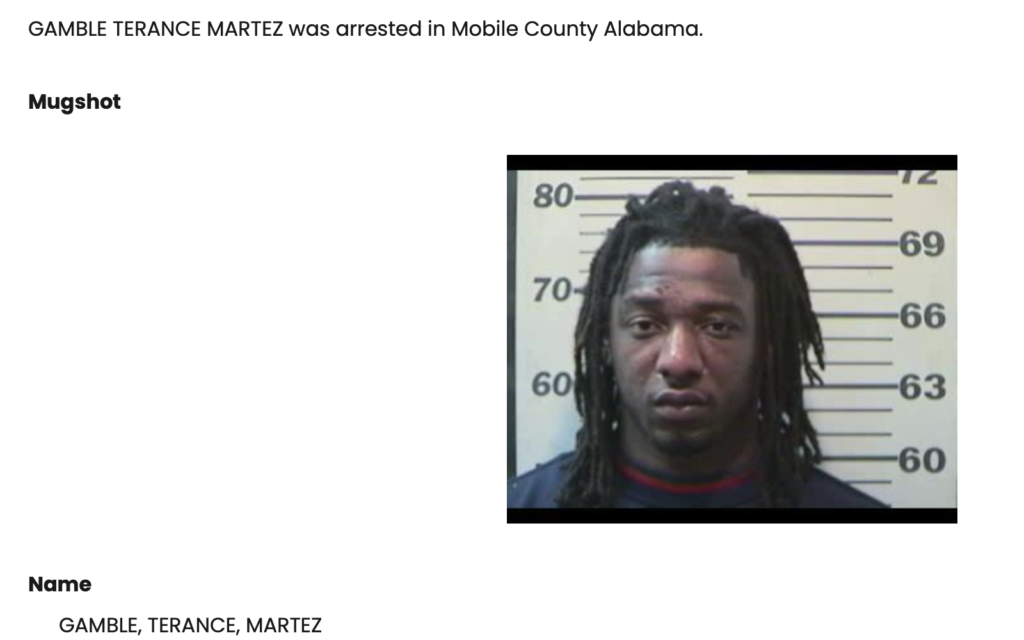
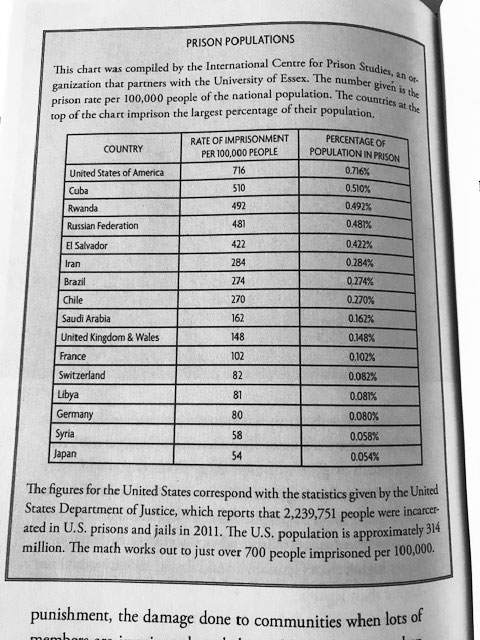
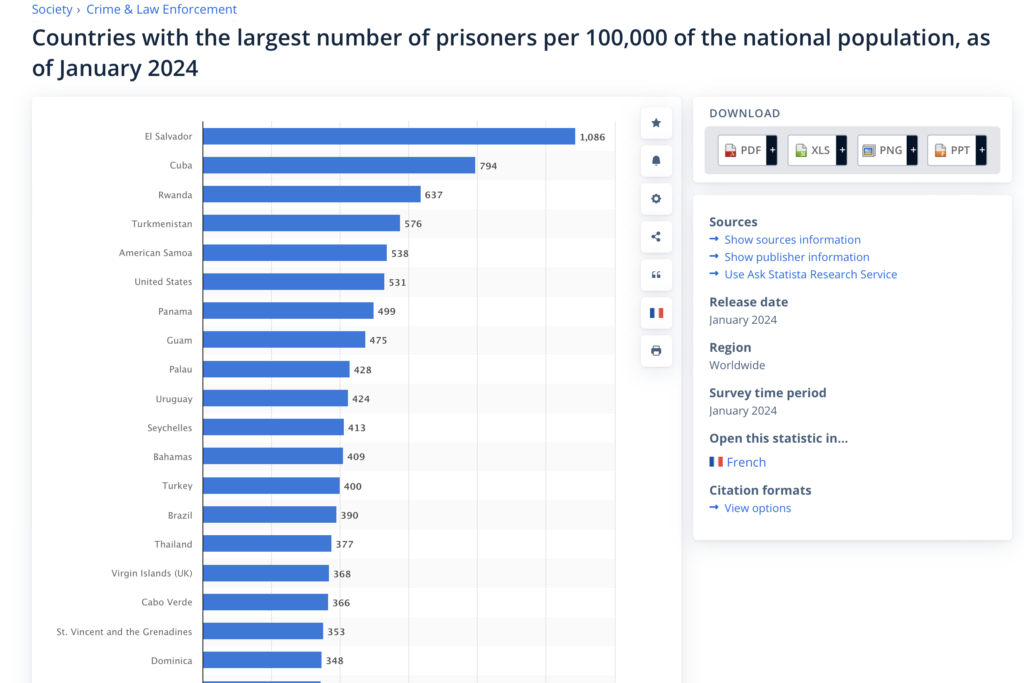
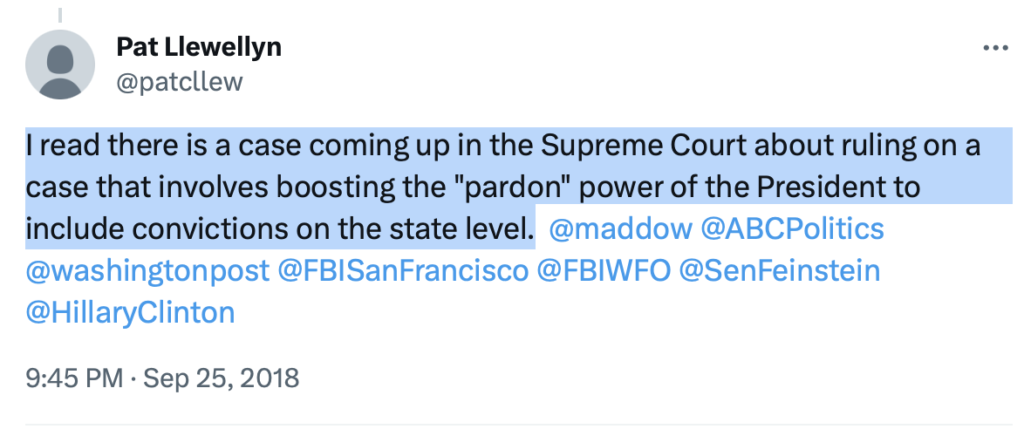
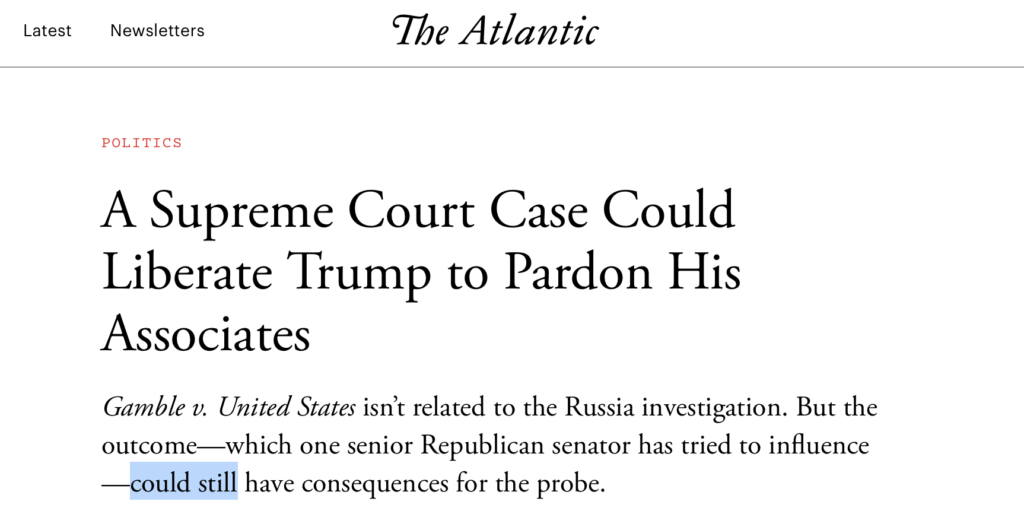
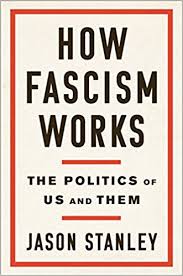
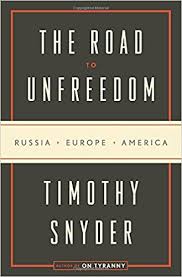
I don’t watch teevee news at all, but this clip made the rounds of the liberal blogosphere in its day. Jon Stewart literally kills a popular show built around two fighters fighting. “You’re hurting America.”
https://m.youtube.com/watch?v=aFQFB5YpDZE&pp=ygUVam9uIHN0ZXdhcnQgY3Jvc3NmaXJl
This whole series is a masterpiece. As a public defender, our national Trump prosecution fetish has me in a weird spot – I want bad actors to be held accountable for endangering our democracy, but I’m also extremely leery of prosecutors and pretty grossed out by the “just lock him up” attitude espoused by the ordinarily pro-CJ-reform left. Like, I hate the guy, but he’s still got rights!
(Also, I confess I am always miffed at the crowing about how Trump won’t be able to get any “good lawyers” to represent him, or possibly even no representation at all. My colleagues and I are free, and we take all comers!)
Finally, just a quick note, I think a few times you wrote Mueller when you probably meant Garland?
Thank you.
Great article as usual! Toward the end you capture perfectly your two “Whew!” moments — Biden’s ascension to the Presidency & trump’s first indictment — each one of which you anticipated (hoped) would end the rage-misinformation cycle. (To which I’d add a third earlier “Whew! — November 7 when the media called the election for Biden — before it became apparent the amount of chicanery the Electoral College offers a prez not fettered by norms.)
As you note, these Whew! moments didn’t end the cycle. I think in part it’s because people are addicted to the jolt that partisan rage gives them. Raging online by “liking” a post or spreading lies gives one a sense of participation in an important struggle. It seems much more exciting & proactive than writing postcards to voters or registering voters.
You also say the cycle is so exhausting that some tune out. My concern is even when tuned out, people receive impressions just by living in our drama-soaked media environment — where the biggest raging firehose hogs coverage . (For example many tuned out likely have the sympathetic impression that trump was denied a jury trial in New York & the judge is biased against him.)
I can’t help wonder who benefits from the cycle of rage.
Thank you for your thoughtful and well documented essays and for being an “illuminator” instead of an outrage peddler.
I always think of the people or outlets with clicks, ad space, and/or merch to sell. It’s a fine line, isn’t it? Just enough outrage, and someone will spring for a $35 t-shirt. A bit too much outrage, and that someone will say “What’s the point of me wearing ‘KEEP FIGHTING’ [or any variation thereof] on my chest? We’ve already LOST.”
Your work, as always, is superb. This paragraph:
“I suggest that the constant misinformation-rage cycle we see in parts of social media and popular news talk shows inadvertently accomplishes the same thing. People are so busy lurching from one crisis to the next that they don’t have time to consider (and evaluate) the policies being implemented by the government. When Trump was in office trying to get tax cuts for the rich and take away health care for people, this helped him. However, when Biden is busy trying to save health care and make life better for ordinary people, nobody cares because they are 100% focused on these issues: “Why isn’t Trump in jail yet! What is wrong with our legal system that he is still a free man? The entire system is corrupt and hopeless.””
… sums up a great deal, and should be the theme of a book of legal analysis and its implications for politics and the tension between democracy and authoritarianism; the title should be, “The Crucial Case of Us v. Them.” Perhaps a novel about a trial in which the defendant keeps trying to distract the court with irrelevancies, and tries to sway the larger court of public opinion. The adversarial system on which our justice is based is a great thing, but forcing politics and social well-being into an adversarial system is not, and could lead to authoritarianism; thus, “Us v. Them.”
This is the “Look! A squirrel!” technique, of distracting the public by flashing shiny objects with the right hand while the left hand is driving a dagger into their collective back. The ability of sadopopulists (thank you for teaching us that word!) to convince the public to love being fleeced is truly impressive. I know your work on disinformation is an attempt to show people how this happens. I keep hoping even more can be done in that regard.
I’m from Missouri too and, though I left fifty years ago and have been teaching for forty+ in NYC, I never shrink from telling my student that I’m from the “Show-Me” State and their written work should show me what they know, with facts, arguments, etc.
Those of us who grew up during the Cold War Consensus trusted all too well our three networks plus a few newspapers (Dudman, anyone?). It’s easy to overlook that prior to that era was the Hearst-Pulitzer “yellow journalism” era. Prior to that was the pure cacophony era of which Jefferson was so enamored.
Everyone living in *this* era would be well-advised to study both media history and media practices; your gloss on algorithms is an excellent start.
Then we can attempt to turn cynicism about politics into (critical) realism about media.
And really get back to a more balanced perspective.
It’s a cultural shift we can only muster if we cultivate it, at the risk of sounding pedantic.
Part 5 does not have a link to the Conclusion. Just the word “conclusion”, no link.
Thanks for telling me.
As a progressive, I can say that a lot of the outrage on our side is caused by a consistent lack of accountability and repercussions faced by numerous corrupt and criminal politicians who have done their best to destroy civil discourse based in truth and in fact, our democracy. From Nixon, who never really faced the music for Watergate, to George Bush (Iran-Contra) to George W. Bush (the illegal Iraq war and subsequent war crimes) and most recently trump and his minions. While trump may be facing numerous court cases, look who’s now the speaker of the House? George Santos continues in congress. Oh, how about Clarence Thomas and his lovely wife? It doesn’t end.
Go back and read about cynicism. I describe exactly what you are talking about. (I am not sure exactly where it is in the series)
It is dangerous and destructive unchecked it will turn the world over to the Clarence Thomases and the George Santos’s of the world.
You also might want to start with my youtube series where I lay out the problem with what you talk about.
Thank you for all of your work. Your explanations are clear and incredibly helpful. I truly appreciate your work.
Excellent piece (and series) pulling so many threads together to help everyone better understand the influences at play.
It seems like a big part of the rage-inducing effect is the myriad opinions that are perceived as fact rather than the speculation that they are. It comes back to education and having the skills to parse the information one consumes accurately. The firehose of information in our 24/7 news blitz makes that a challenge even for the most careful information consumer.
As always, you write and argue clearly, and that is such a pleasure. My apologies, then, for the former copy editor in me. In the “Crisis and spectacle” section, you repeat a sentence (“Thus the task of oligarchs…”) which I don’t think is intentional. Also, in the next paragraph, do you mean to say “When autocratic presidents…,” and not “democratic presidents”?
Thank you so much, this is really instructive. I also fell into the trap about Manafort, and I didn’t know about Mr Hamble.
I must read the other parts now.